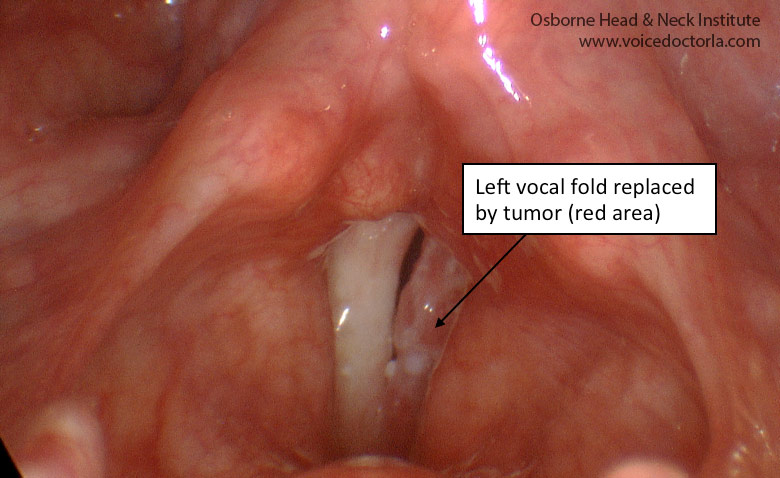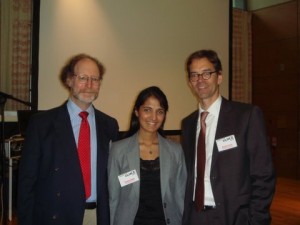- Question: How do the ingredients in e-cigarettes and vaporizers affect respiratory health? - August 16, 2019
- Bad Technique and Vocal Injury - January 9, 2019
- Is Edible Marijuana Dangerous for the Voice? Myths Dispelled - December 18, 2018
- Surprise! You have a hemorrhage - January 31, 2018
- Graves’ Disease: Treatment Overview - September 25, 2017
- Adele and the Stigma of Vocal Injury - July 11, 2017
- Vocal Curbside Consult: How does the thyroid affect the voice? - May 16, 2017
- Vocal Curbside Consult: How do hormones affect the voice? - May 3, 2017
- Vocal Curbside Consult: How do emotion and stress affect the voice? - April 17, 2017
- Vocal Curbside Consult: Vocal Recovery After Illness - April 7, 2017
The patient is a 59 year old male who presented with a 10 month history of throat clearing. He noted some mild voice changes approximately 2 months ago but states his voice has always been weak. He went to his primary care physician at the time of onset who felt this was allergies and prescribed him a nasal spray. When his symptoms did not improve one month later, antibiotics were attempted without any improvement.
The patient was eventually referred to an ENT 8 months after symptom onset. A flexible fiberoptic laryngoscopy was performed and demonstrated “redness” for which the patient was prescribed reflux medications. One month later, symptoms had not improved and so double doses of reflux medications were prescribed. At this point, the patient sought a second opinion and went to an ENT who performed rigid laryngoscopy. A thorough evaluation could not be performed due to the patient’s gag reflex and so it was recommended he have an exam under general anesthesia.
The patient presented here for a 3rd opinion prior to proceeding with general anesthesia. His history and his voice were suspicious for a vocal fold issue and stroboscopy was performed. The image obtained is presented here:

There is an infiltrative lesion replacing the entire left vocal fold, which is highly suspicious for vocal fold cancer. Based on this finding, aggressive diagnosis and treatment is being pursued.
This case is a concerning demonstration of many important points:
- Duration of symptoms – after two weeks of hoarseness that did not respond to nasal sprays or other treatments, the patient should have been referred for laryngoscopy. Unexplained hoarseness that has lasted more than 2 weeks must be evaluated by directly visualizing the vocal folds. In singers, because the risk for injury is so much higher and more impactful to their careers, hoarseness for more than 2 days must be evaluated.
- Failure of diagnosis by first ENT – fiberoptic flexible laryngoscopy (“scope in the nose”) is the tool used by over 90% of general ENTS to evaluate the larynx. It cannot be emphasized enough that this low-resolution modality risks missed diagnoses.
- Failure of diagnosis by second ENT –rigid laryngoscopy, even without the strobe light source (called videostroboscopy) is significantly more accurate than flexible fiberoptic scopes. However, this was done by a general ENT in this case and there was clearly some lack of comfort with the technology. The limited visualization they achieved was due to inexperience with the equipment. The patient’s diagnosis was further delayed for this reason.
- Failure of referral to a sub-specialist – Despite not getting visualization, the patient was offered general anesthesia for diagnosis. It is not appropriate for a patient to have to have anesthesia when the view above can be obtained by a skilled practitioner. This patient should not have had to self-refer – they should have been referred by their ENT to a sub-specialty trained laryngologist.
It is vital to ensure that when hoarseness persists for more than 2 weeks, you are evaluated thoroughly by the most experienced professional. Professional voice users are more prone to injury due to their intense vocal use. They can also tolerate vocal injury less, as it is severely impactful to their career. For this reason, professional voice users with hoarseness should be evaluated within 2 days.
To learn more about Dr. Reena Gupta or proper voice consultation, please visit www.voicedoctorla.com.



